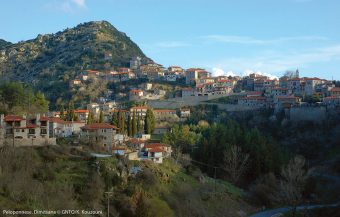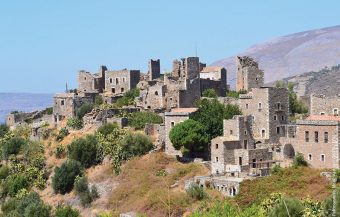
Warm sea, pleasant climate and authentic architecture – this is perhaps the shortest description of one of the most popular tourist destinations on the European continent and the largest country on the Balkan Peninsula. However, apart from being a favorite summer destination, Greece is attracting more and more attention due to the development of a green economy in the demanding conditions that nature has imposed on the country. The Greek government plans to significantly increase its green energy capacities so that renewable energy sources (RES) will make up at least 60 per cent of the energy mix by 2030.
The Greek Ambassador to Serbia, H.E. Maria Levanti, says that in 2021, Greece drafted and published the National Energy and Climate Plan (ESEK) for the period up to 2030, which sets goals and defines measures related to the national environmental protection policy. In this context, a number of measures have already been implemented in terms of energy modernization of buildings, replacement of fuel for heating units and replacement of heating and cooling devices. At the same time, in 2020, policies and measures for delignitization and environmental restoration were drafted and implemented in areas with lignite production, which have been temporarily postponed due to the recent energy crisis.
Greece is also working on expanding its renewable energy facilities and applying measures that contribute to environmental protection to boost both the Greek and regional economies.
IN FOCUS:
- DEVELOPING ELECTROMOBILITY AS VOLVO’S PRIORITY
- ORIGINAL AND ECO-FRIENDLY SCENTS OF CITIES
- A STORY INSPIRED BY THE LOVE AND CARE OF CHILDREN
Q. Renewable energy sources (RES) have fully corresponded to the increase in global demand for electricity in the first half of 2022. How did you manage to get rid of fossil fuels and switch to clean energy to ensure that the country has enough energy?
A. The Investment Law stipulates incentives for the use of renewable energy sources. The National Energy Programme has set specific energy and climate goals to be achieved by 2030. Cumulatively, RES units, mainly PV, reached 6.5GW in the national power distribution grid in 2022 compared to 4GW in 2019, while the capacity is expected to exceed 8.7GW based on planned projects for 2023.

Q. Greece aims to increase its green energy capacity significantly. How will you make that happen?
A. The National Energy and Climate Plan (ESEK), which covers the period from 2021 to 2030, has set the ultimate goal of RES covering 60 per cent of consumption. To achieve this, initiatives are already being implemented to simplify and expedite the issuance of permits, the optimal integration of RES into power grids, the operation of storage systems, and the promotion of electromobility. RES already contribute more than 50 per cent to the country’s energy structure.
Q. How will you reach the goal of zero greenhouse gas emissions in the near future?
A. The National Energy and Climate Plan’s overall goal is to transition to climate neutrality by 2050 in a sustainable, fair, and cost-effective manner. As part of the Recovery and Resilience Plan, which covers various sectors, such as clean energy, green construction, sustainable mobility, sustainable agriculture and others, Greece allocates 37.5 per cent of the Plan’s budget to climate goals. In recent years, harmful emissions of many elements found in air pollutants have been significantly reduced in Greece. According to the latest census data submitted by Greece to the European Commission, greenhouse gas emissions in the country were reduced by 28 per cent from 1990 to 2020. In 2019, Greece defined the implementation of special activities under the auspices of the National Air Pollution Control Programme (EPEAR), the improvement and modernization of air quality monitoring and the provision of timely submission of relevant reports, the reduction of nitrogen oxides and particles, also through the planning of fiscal and energy options and with the help of the European initiative Coal Regions in Transition as its priority goals, all to reduce the use of coal which households use for heating and limit harmful emissions of air pollutants.

Q. The Republic of Greece ranks 28th on the EPI list (Environmental Performance Index) out of 170 countries. How did you make progress in environmental preservation, and what have been the priorities along the way?
A. Environmental legislation in Greece follows international and European coordinates. It is worth noting that some legal regulations concerning environmental protection were passed very early. For instance, the legal definition of national parks has been institutionalized since the 1930s.
Regarding nature protection, the Greek network of protected areas within the EU borders, Natura 2000, is now considered complete. As for simplifying administrative structures and procedures for implementing environmental legislation, some recent steps in that direction included simplifying risk and environmental impact assessment procedures and the implementation of European directives on natural habitats and industrial gas emissions. Greece’s environmental investments amounted to 0.72 per cent of the country’s GDP in the period from 2014 to 2020, while from 2021 to 2027, it is estimated that they will exceed 1.12 per cent of GDP.
Interviewed by: Mirjana Vujadinović Tomevski
Read the story in the new issue of the Energy portal Magazine ELECTROMOBILITY

